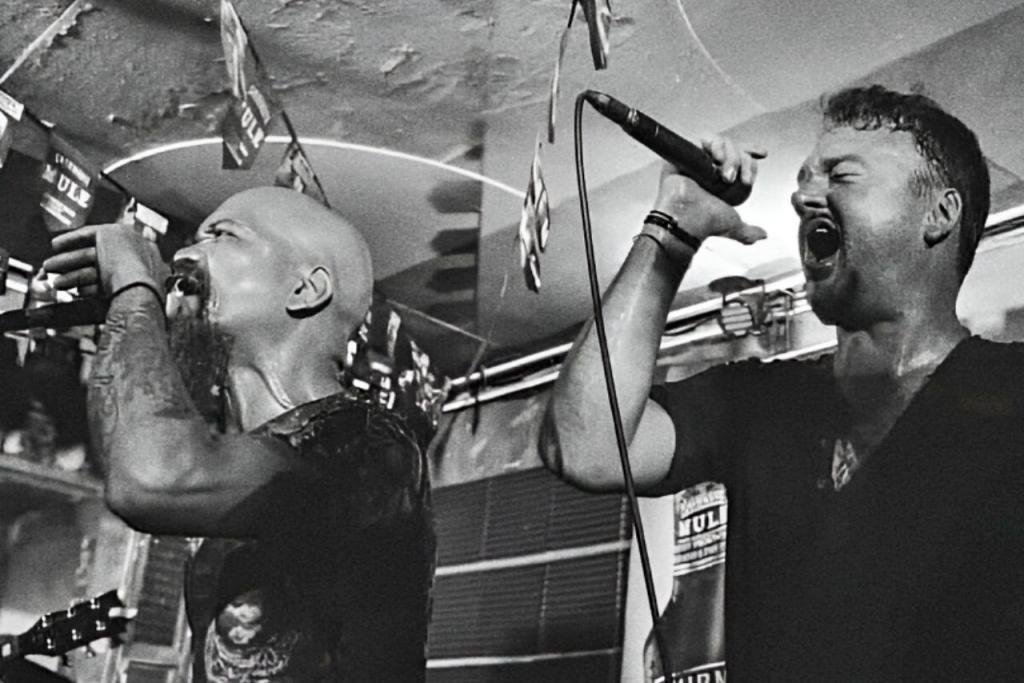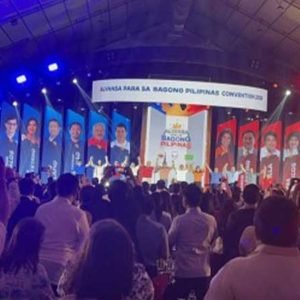
And that was just for the first 4 months of sales.
On Sept. 18, Wolfgang lead singer Basti Artadi posted on his Facebook page his misgivings about the rerelease, on vinyl, of the band’s self-titled 1995 debut album:
“This could have been so easy and enjoyable but … You know why Wolfgang is not supporting the Ivory/Vicor “Wolfgang” vinyl pressing? They will “pay” the band P2.40 per P1,900 record. P2.40 that Manuel (Legarda), Wolf (Gemora), myself, and Mon’s (Legaspi) kids will have to split between each other.
That means if the record company makes P1,900,000 [from] album sales, Wolfgang gets 600 pesos each. [It’s] 2024 and this is the type of stuff that still goes on today when, honestly, there is enough to go around if people weren’t so greedy. Next year is the official 30th anniversary of the album. I have plans, if you can wait, I will make it worth your while and the band would appreciate it because we will finally get paid for fighting to put that album out.”
Artadi attached a photo of the album cover, with P2.40 in coins.

His thoughts brought me back to 1994, the year of the release of Yano’s self-titled album. At the time I was comanaging Yano with Arthur “Judge Dredd” Pimentel, with whom I was also handling Pepe Smith, who had just come out of jail after being acquitted of drug charges.
The story of how Yano bagged an album deal — especially the negotiations that involved three record labels, the actual recording, how the single “Banal na Aso” was promoted, and so on — is worth retelling in the context of the Wolfgang album’s contract and Artadi’s situation.
Early on, Arthur and I knew Yano would hit the big time by virtue of its brilliantly written songs. If the Eraserheads was then the country’s no. 1 band, Yano wouldn’t be far behind, Arthur and I agreed.
“I won’t mind if Yano is no. 2,” I said, although when it came to performing live — and this was in 1994 — the Eheads sounded lousy.
I laid out a plan. Since I was then a freelance writer, I thought it would be good to do a feature story on Yano as a hot, upcoming band with a full album’s worth of original songs.
We asked Francine Medina to do a photo shoot at the UP Diliman campus. Since she was part of our Red Rocks/Club Dredd circle of friends, I paid her in kind — a merienda of Pancit Malabon at my sister’s restaurant.
I wrote the story for Inquirer, and my then editor, Gin de Mesa, gave it a lavish, full-page exposure.
Bidding war
I wanted the record labels to do a bidding war to sign up Yano. Pretty soon, Fred Samantela, who was then an executive at Viva Records (incidentally the label that will re-release Wolfgang’s album), called and offered a contract.
We asked for P300,000 in advance royalties. Fred sent a draft of the contract, with the amount stipulated.
But wait, Arthur said, let’s ask for a high royalty rate. Ok, I seconded the motion. We didn’t sign right away.
Vic Valenciano of BMG Records (where the Eraserheads were signed) also wanted Yano. What I remember was being persuaded and lectured by him and label boss Buddy Medina at the BMG office on why I should agree to their terms — which sadly didn’t include a good royalty rate.
Bidder no. 3 was Alpha Records, which sent its artist & repertoire (A&R) manager, Manny Salta, to ask what it would take to sign up with them.
P300,000 in advance royalties payable upon the contract signing, and a 12-percent royalty rate, said Arthur. He calculated that, for every cassette tape sold at the time, Yano would get something like P8.00, and higher for the CD.
But even without a record deal, we had started recording Yano’s songs at Jim Paredes’ Circle of Fifths studio, with G.I. and the Idiots guitarist Benjie Sengson as sound engineer.
‘Utang muna’
Utang muna, I asked Benjie and explained that we’d soon have a record deal. Utang muna rin ang food, I asked my sister Menchu Fenix since we needed to feed the two Yanos, Dong Abay and Eric Gancio, plus session musicians Onie Badiang and Nowie Favila (on loan from Joey Ayala’s Bagong Lumad and Cocojam, respectively), and roadie Romy Buen.
We had not completed the recording sessions when Jim called me up. Magbayad ka na, he said. The running bill was over P100,000.
Just in time, Alpha agreed to our terms. Yano and I signed a deal that would pay off handsomely in just a few months. After Alpha released the advance royalty check and I settled the recording bill, among other expenses, the next step was to promote a single from the album, the unanimous choice of which was “Banal na Aso.”

Alpha went to work, and the song was put on heavy rotation on WLS, starting with the Triggerman’s show, “Top 20 at 12.”
Arthur tapped friends including Maghiar Tuason and Bones Calleja to do a homemade music video.
We accepted all kinds of gigs to promote the album. One of the first was a performance at UP Baguio which paid only P1,500 — for four band members.
When “Banal na Aso” made its mark, and later on, when “Eat Bulaga” called for Yano to do the show’s opening number (the band chose to perform “Tsinelas”), the phone at Arthur’s house kept ringing with offers to do concerts all over the country.
A gig in Cebu featured the Eheads and Yano back-to-back, with both bands getting paid P100,000 each. That would probably be worth P1 million today, which Parokya ni Edgar currently charges.
Sales report on scratch paper
When it was time to collect royalties from album sales for the first quarter (four months), Arthur was laughing from my kuwento: After impatiently waiting for the sales report in the Alpha office, I was given a small piece of scratch paper with a handwriting that says, P350,000.
But Alpha didn’t want to pay in cash and instead offered us a Mitsubishi L300 van, not brand-new, but still in fine shape. Ok na rin, Arthur said, we can use it to go to gigs.
In 1995 I quit managing Yano, and Arthur followed suit. Yano didn’t want to record a second album, and Alpha sued us for breach of contract. Yano needed a new manager and got Butch Dans, who was wise enough to realize that he had to deal with Arthur and me first before anything else.
Butch bought us out of the contract and paid us with the van plus P60,000 cash. I said Arthur could keep the van, while I got the cash.
I don’t know if Yano continued receiving royalties from its first album. The bottom line is, a good band with good songs can ask for a good royalty rate.
Image credits: Facebook






